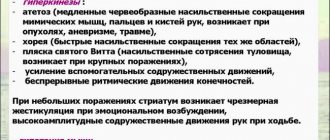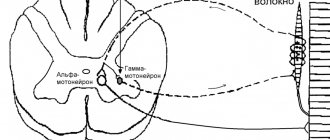The concept of a teacher’s individual style of activity
More about pedagogy » Individual style of activity and the use of other people’s teaching experience » The concept of an individual style of activity of a teacher
Page 2
Authoritarian style. The student is considered as an object of pedagogical influence. The teacher makes decisions alone, establishes strict control over the fulfillment of the requirements placed on him, uses his rights without taking into account the situation and opinions of students, and does not justify his actions to students. As a result, students lose activity, exhibit low self-esteem, and aggressiveness. The forces of such a teacher’s students are aimed at psychological self-defense, and not at mastering knowledge and their own development. The main methods of influence of such a teacher are orders and teaching. Teachers are characterized by low satisfaction with their profession. In the teaching staff, teachers with this style often become leaders.
Liberal style. The teacher avoids making decisions, transferring the initiative to students and colleagues. Organizes and controls the activities of students without a system, shows indecision and hesitation. The classroom has an unstable microclimate and hidden conflicts.
The classification of styles of teaching activity proposed by I.F. Demidova is, in our opinion, the most complete. She identifies 4 types of individual styles of teaching activity.
Emotionally improvisational. Focusing primarily on the learning process, the teacher does not plan his work adequately in relation to the final results; For the lesson, he selects the most interesting material, and often leaves less interesting (albeit important) material for students to work on independently. Focuses mainly on strong students. The teacher’s activities are highly operational: the types of work often change during the lesson, and collective discussion is practiced. However, his activities are characterized by low methodicality, insufficient consolidation and repetition of educational material, and control of knowledge. The teacher has increased sensitivity depending on the situation in the lesson, flexibility and impulsiveness. Such a teacher is sensitive and insightful towards students.
Emotionally methodical. The teacher focuses on both the learning process and its result. The teacher’s activities are highly operational, but intuitiveness prevails over reflexivity. The teacher strives to activate students not with external entertainment, but with the features of the subject itself. Such a teacher is sensitive and insightful towards students.
Reasoning-improvisational. A teacher is characterized by an orientation towards the learning process and results, adequate planning, efficiency, and a combination of intuitiveness and reflectivity. The teacher is less inventive and varies teaching methods, and does not always use collective discussions. But the teacher himself speaks less, especially during the survey, thereby giving respondents the opportunity to formulate their answer in detail. Teachers of this style are less sensitive to changes in the situation in the lesson. They are characterized by caution and traditionalism.
Reasoning and methodical. The teacher focuses primarily on the learning outcome. He shows conservatism in the use of means and methods of pedagogical activity. High methodologicalness is combined with a small, standard set of teaching methods, preference for students' reproductive activity, and rare collective discussions. The teacher is distinguished by reflexivity, low sensitivity to changes in situations in the lesson, and caution in his actions.
Thus, having analyzed the works of didactics and psychologists aimed at studying pedagogical activity, we defined the individual style of pedagogical activity as a system of methods and techniques, a certain way of thinking, a manner of communication, ways of presenting demands associated with a system of views and beliefs. And the following types of individual style of activity were identified:
emotional-improvisational,
emotional and methodical,
reasoning-improvisational,
reasoning-methodical
Pages: 2
Education information:
Diagnosing the success of teachers’ activities In order to confirm (refute) our hypothesis that the success and effectiveness of a teacher’s activity depends on his use of the experience of other teachers to form an individual style of activity, we conducted psychological and pedagogical research among teachers ...
Category of hearing impaired children Normal hearing is a condition for communication through speech, a factor in the formation of speech, the development of thinking and general mental development. The overall development of a child with hearing impairment is influenced by the following factors: Hearing condition. Level of speech development, individual characteristics. Specially organized...
Solving experimental problems on the topic “Main classes of inorganic compounds” It is advisable to carry out the work after systematizing and generalizing knowledge on the topic. It is of fundamental importance, since students for the first time encounter a new form of chemical experiment - experimental problems, in solving which they must demonstrate their complete independence in practical ...









